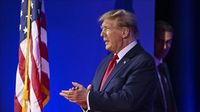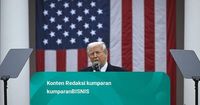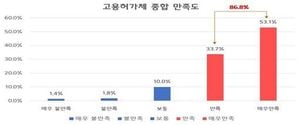The Trump Administration has announced exemptions from high reciprocal tariffs for smartphones, computers, and various other electronic goods primarily imported from China. This decision, which provides significant relief to tech companies like Apple, was detailed in a notice from the U.S. Customs and Border Protection (CBP), which published a list of tariff codes exempt from import taxes. The exemptions are retroactive to 12:01 a.m. EDT on April 5, 2025.
According to the CBP, the list includes 20 product categories, notably the general code 8471, which encompasses all computers, laptops, disk drives, and automated data processing equipment. This code also covers semiconductor devices, memory chips, and flat panel displays, which are now free from reciprocal tariffs.
Trump's actions additionally exclude specific electronics from a base tariff of 10% applied to goods from most countries other than China, thereby reducing import costs for semiconductors from Taiwan and Apple iPhones manufactured in India. This strategic move appears to be a response to ongoing negotiations and the potential economic impact of tariffs on American consumers.
Dan Ives, an analyst at Wedbush Securities, remarked on the announcement, stating it was "the most optimistic news we've heard this weekend." He acknowledged the uncertainty and volatility that still looms over negotiations with China but noted that major tech firms like Apple, Nvidia, and Microsoft can breathe a sigh of relief for the time being.
For imports from China, the exemption only applies to Trump's reciprocal tariffs, which recently increased to 125%. Meanwhile, the previous 20% import duty on all imports from China related to the U.S. fentanyl crisis remains in effect. A White House official indicated that Trump plans to launch a new national security trade investigation into semiconductors, which could lead to additional tariffs.
Karoline Leavitt, a spokesperson for the White House, emphasized that the U.S. cannot rely on China for the production of critical technologies such as semiconductors, chips, smartphones, and laptops. She noted that under Trump's direction, major tech companies, including Apple and chip manufacturers like Nvidia and Taiwan Semiconductor, are making efforts to shift production back to the United States as soon as possible.
This exemption reflects a growing awareness within the Trump administration of the potential pain tariffs could inflict on consumers already grappling with inflation. Even with reduced import duties of 54% for goods from China, analysts predict that the price of high-end Apple iPhones could soar to $2,300 from the current $1,599.
At a 125% import duty, economists and analysts warn that U.S.-China trade could come to a standstill. In 2024, smartphones were the top U.S. import from China, valued at $41.7 billion, followed closely by laptops at $33.1 billion, according to data from the U.S. Census Bureau.
In a strategic move to mitigate the impact of tariffs, Apple has recently chartered cargo flights to transport 600 tons of iPhones, equivalent to about 1.5 million units, from India to the U.S. This increase in production in India is part of Apple's efforts to navigate the challenging tariff landscape.
Trump's administration has faced criticism regarding its tariff policies, with some Republican members concerned about the potential economic fallout as they seek to retain control of Congress in the upcoming midterm elections. Critics from both sides of the aisle have pointed to the risks of recession and the impact of high tariffs on American consumers.
Last week, Trump also delayed higher import duties for 57 trading partners and the European Union, which led to most countries imposing tariffs of 10% while negotiating trade agreements with Washington. As Trump spent the weekend at his Florida residence, he expressed confidence in his relationship with Chinese President Xi Jinping, suggesting that positive outcomes could emerge from their ongoing trade conflict.
However, the financial markets have been jittery, especially after China mirrored Trump's latest tariff hikes on U.S. imports, raising the stakes in a trade war that threatens to disrupt global supply chains. With the stakes so high, the tech industry and consumers alike are anxiously watching how these developments will unfold.






